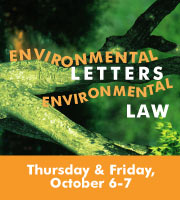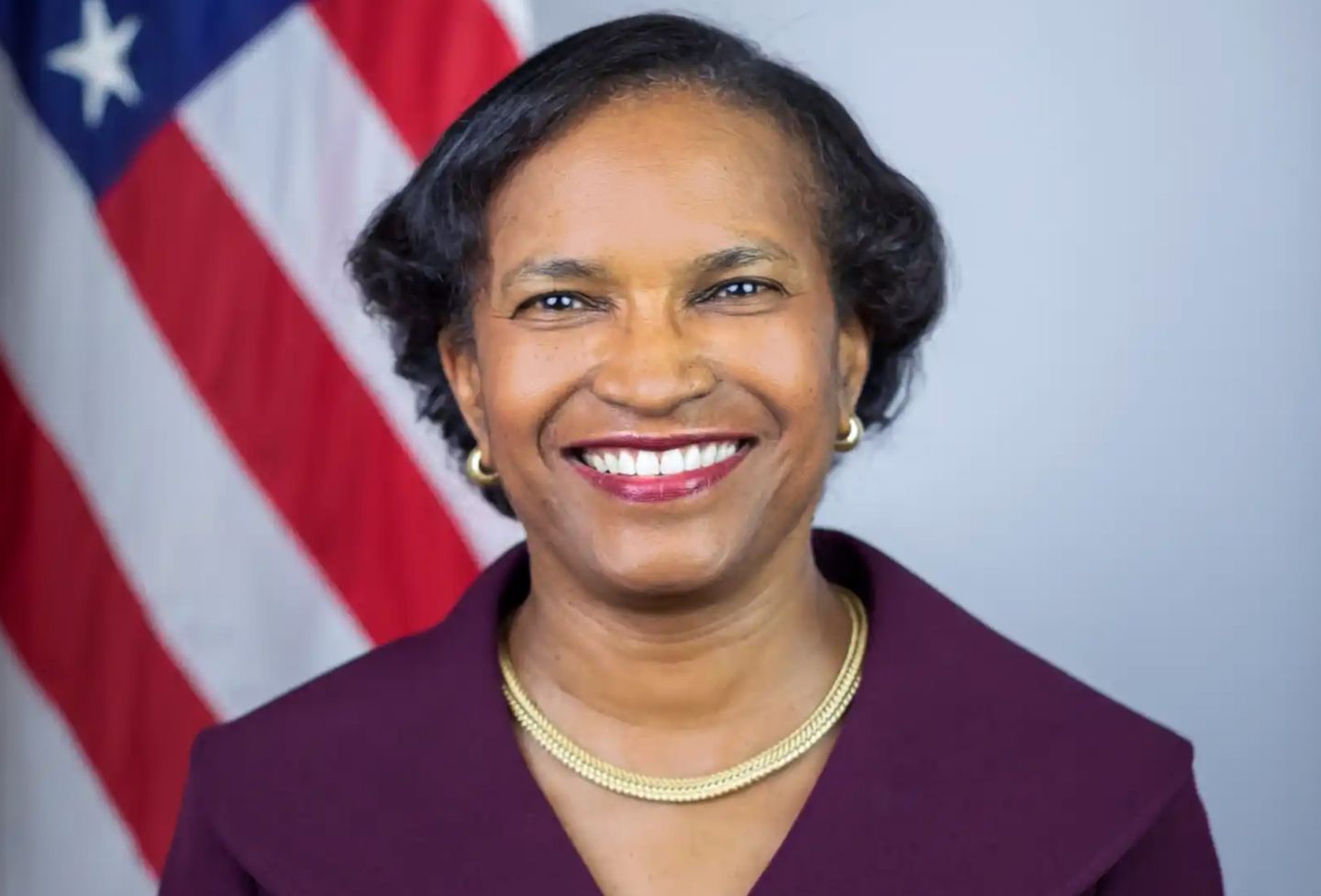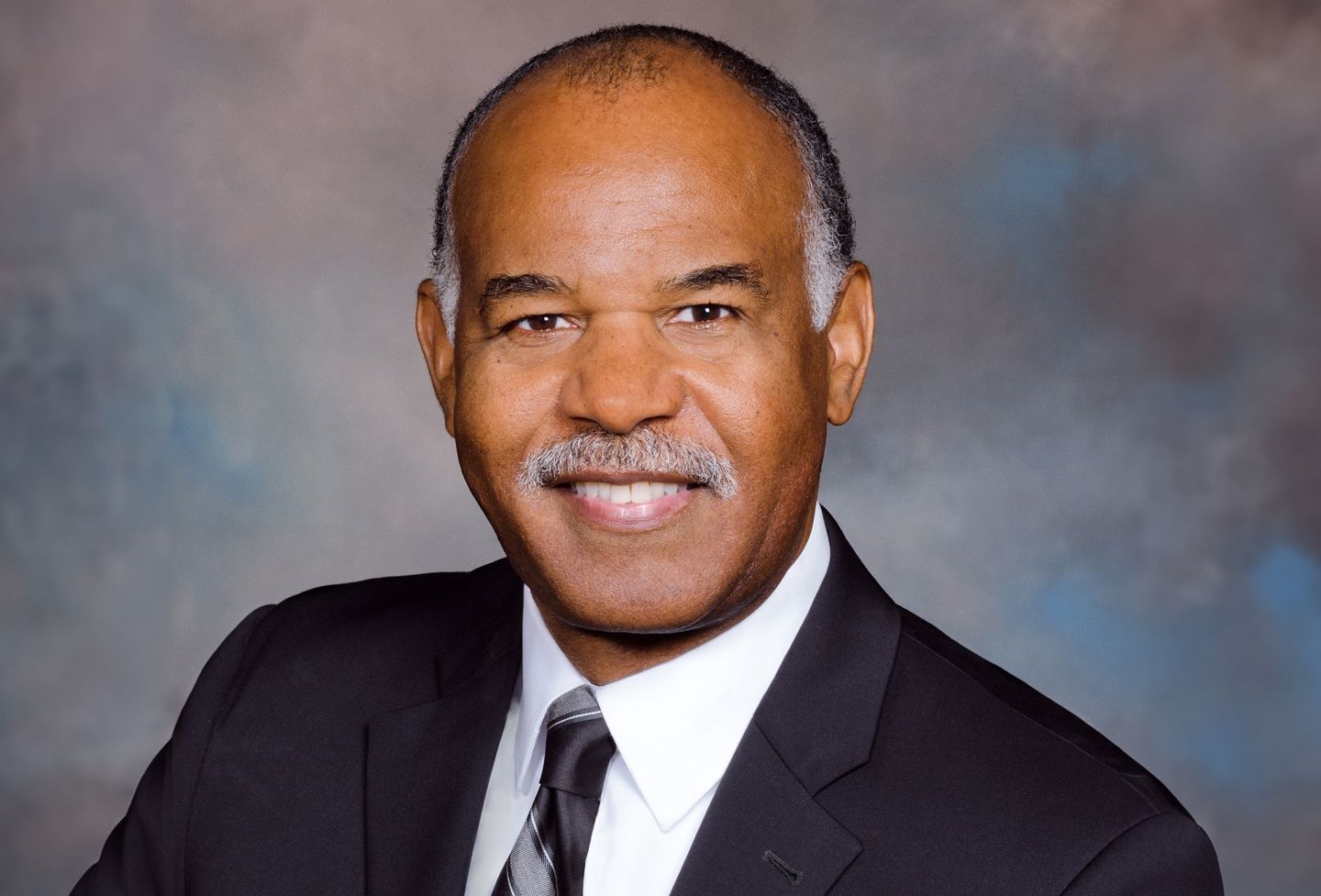Conference to Explore Role of Humanities in Environmental Law
Posted September 15, 2005
 The University of Virginia School of Law will host “Environmental Letters/Environmental Law” Oct. 6-7, a cross-disciplinary conference organized to explore the impact of the humanities on environmental law and policy. Panels on ethics, criticism, history, and law will include leading writers and scholars from a variety of disciplines. The keynote address will be delivered byWilliam Cronon, Frederick Jackson Turner and Vilas Research Professor of History, Geography, and Environmental Studies at the University of Wisconsin.
The University of Virginia School of Law will host “Environmental Letters/Environmental Law” Oct. 6-7, a cross-disciplinary conference organized to explore the impact of the humanities on environmental law and policy. Panels on ethics, criticism, history, and law will include leading writers and scholars from a variety of disciplines. The keynote address will be delivered byWilliam Cronon, Frederick Jackson Turner and Vilas Research Professor of History, Geography, and Environmental Studies at the University of Wisconsin.
Panels will explore how tools from the humanities illuminate environmental policy and its implementation, what lessons they suggest, and where future studies might lead.
All sessions are located in Caplin Pavilion and are open to the public. Panel sessions include ample time for audience members to interact with faculty, students, and panelists. The conference is sponsored by the University of Virginia School of Law's Environmental Law Program and Program in Law & Humanities, the Brown College Visiting Environmental Writers Series, the Virginia Journal of Environmental Law, the Institute for Practical Ethics and Public Policy, the Piedmont Environmental Council, and the Southern Environmental Law Center.
Parking: Students attending the conference should take the bus; members of the Charlottesville community will be able to park in the D3 lot, near the JAG School (follow the signs).
|
THURSDAY, OCTOBER 6, CAPLIN PAVILION
|
||
| 9:00-9:40 | COFFEE AND PASTRIES | |
| 9:40-10:00 |
INTRODUCTIONS
Jon Cannon Willis Jenkins |
|
| 10:00-11:45 |
ETHICS
Bryan Norton, Professor of Philosophy, Georgia Institute of Technology, Department of Public Policy Comment: Alyson Flournoy, Professor of Law, University of Florida, Frederic G. Levin College of Law; Jim Childress, Hollingsworth Professor of Ethics and Professor of Medical Education, University of Virginia. |
|
| 1:45-4:00 |
CRITICISM
Louise Westling, Professor, Department of English, University of Oregon Steve Cushman, Robert C. Taylor Professor of English, University of Virginia Comment: Jim Warren, S. Blount Mason, Jr., Professor and Chair, Department of English, Washington and Lee University; and Anne Coughlin, O.M. Vicars Professor of Law, University of Virginia School of Law |
|
| 4:15-5:15 |
CONFERENCE LECTURE
William Cronon, Frederick Jackson Turner and Vilas Research Professor of History, Geography, and Environmental Studies, University of Wisconsin |
|
|
FRIDAY, OCTOBER 7
|
||
| 8:45-10:30 |
HISTORY
Edmund Russell, Associate Professor, Science, Technology and Society and History, University of Virginia Arthur McEvoy, J. Willard Hurst Professor, University of Wisconsin Law School Comment: Julia Mahoney, Professor of Law, University of Virginia School of Law;Karl Brooks, Assistant Professor of History and Environmental Studies, University of Kansas |
|
| 10:45-12:30 |
LAW Richard Lazarus, Professor of Law, Georgetown Law School Human Nature, the Laws of Nature, and the Nature of Environmental Law
Eric Freyfogle, Max T. Rowe Professor, Illinois Law School Comment: Holly Doremus, Professor of Law and Chancellor’s Fellow, University of California Davis School of Law; Peter Brooks, University Professor, University of Virginia |
|
CONFERENCE PARTICIPANTS
Karl Brooks is Assistant Professor of History and Environmental Studies at the University of Kansas. His research and teaching interests include environmental law and policy in North America; energy and the environment; and nongovernmental organizations in American politics, especially environmental policy. A Boise, Idaho, native, Brooks practiced law there from 1983 to 1993, served three terms in the Idaho Senate, and worked for the Idaho Conservation League. He has published numerous articles in the fields of environmental history and environmental law, and is currently working on two books, A Rising Wind: The Emergence of American Environmental Law, 1945-1980; and Unplugging the New Deal: Hells Canyon High Dam and the Postwar Northwest.
Peter Brooks is University Professor and Director of the Program in Law & Humanities at the University of Virginia School of Law. Previously he taught at Yale University, most recently as Sterling Professor of Comparative Literature & French and directed Yale's Whitney Humanities Center from 1980-91 and 1996-2001. Brooks has published on narrative and narrative theory, and, most recently, on the interrelations of law and literature. He is the author of several books, including Troubling Confessions: Speaking Guilt in Law and Literature and Psychoanalysis and Storytelling, and his essays and reviews have appeared inThe New York Times, The New Republic, Times Literary Supplement, The Nation, London Review of Books, Critical Inquiry, New Literary History, the Yale Law Journal, and elsewhere.
Lawrence Buell is Harvard College Professor and Powell M. Cabot Professor of American Literature at Harvard University. He teaches courses in the history of American literature and culture, and has a particular interest in environmental(ist) discourses. He is the author of Literary Transcendentalism (1973),New England Literary Culture (1986), The Environmental Imagination: Thoreau, Nature Writing, and the Formation of American Culture (1995), Writing for an Endangered World: Literature, Culture, and Environment in the United States and Beyond (2001), and Emerson (2003). Writing for an Endangered World won the Popular Culture and American Culture Associations' Cawelti Prize for the best book of 2001 in the field of American Cultural Studies; Emerson won the 2003 Warren-Brooks Award for outstanding literary criticism.
James Childress is John Allen Hollingsworth Professor of Ethics and Professor of Medical Education at the University of Virginia, where he directs the Institute for Practical Ethics and Public Policy. He teaches biomedical and environmental ethics and is the author of numerous articles and several books, includingPrinciples of Biomedical Ethics (with Tom L. Beauchamp), Priorities in Biomedical Ethics, Who Should Decide?Paternalism in Health Care, and Practical Reasoning in Bioethics. Childress has served on numerous boards and committees on biomedical ethics, including the presidentially appointed National Bioethics Advisory Commission.
Anne Coughlin is O.M. Vicars Professor of Law and Barron F. Black Research Professor at the University of Virginia School of Law. Her primary research and teaching interests are in the areas of criminal law, criminal procedure, and feminist jurisprudence. She is the author of the book, Criminal Law (with Richard J. Bonnie, John C. Jeffries Jr., and Peter W. Low) and a number of articles, including “Representing the Forbidden”; "Whose Honor? Whose Revenge?: Comments on Figueredo's 'Blame, Retribution and Deterrence'"; "I’m in the Mood for Law" (reviewing Binder & Weisberg, Literary Criticisms of Law); and "Writing for Justice Powell. "
William Cronon is Frederick Jackson Turner and Vilas Research Professor of History, Geography, and Environmental Studies at the University of Wisconsin-Madison. His research seeks to understand the history of human interactions with the natural world: how we depend on ecosystems to sustain us, how we modify landscapes, and how our ideas of nature shape our relationships with the world around us. Cronon’s book, Nature's Metropolis: Chicago and the Great West, was awarded the Chicago Tribune's Heartland Prize, the Bancroft Prize, the George Perkins Marsh Prize, and the Charles A. Weyerhaeuser Award. It was also nominated for the Pulitzer Prize in History. He is currently at work on a history of Portage, Wisconsin, that will explore how people's sense of place is shaped by the stories they tell about their homes, their lives, and the landscapes they inhabit.
Stephen B. Cushman is Robert C. Taylor Professor of English and Director of the International Center for American Studies at the University of Virginia. His interests are in 19th- and 20th-century American literature, and his courses often focus on Emerson, Thoreau, Whitman, Dickinson, and modern poetry. Cushman is the author of a number of books and articles, including Cussing Lesson (poems); Bloody Promenade: Reflections on a Civil War Battle; "Whitman and Patriotism"; “'The Descent of Winter' and the Poetry of the Calendar" in Rigor of Beauty: Essays in Commemoration of William Carlos Williams.
Holly Doremus is Professor of Law and Chancellor’s Fellow at the University of California Davis School of Law and this year is Visiting Professor of Law and Natural Resources at the University of California at Berkeley. She teaches environmental law, property, land use law, and law and science. Before entering law school, Doremus conducted basic research on the metabolic pathways of plants, and her research and writing address the interplay of science, values and law in the shaping of public policy. Recent articles include, “The Purposes, Effects, and Future of the Endangered Species Act’s Best Available Science Mandate,” “Environmental Ethics and Environmental Law: Harmony, Dissonance, Cacophony, or Irrelevance?,” and “Shaping the Future: the Dialectic of Law and Environmental Values.”
Alyson Flournoy is Professor of Law and Director of the Environmental & Land Use Law Program at the Fredric G. Lewin College of Law at the University of Florida. She specializes in environmental law, property, administrative law, and advanced environmental law and litigation. Her publications include “In Search of an Environmental Ethic”; “Restoration Rx: An Evaluation and Prescription”; “Wetlands, Ecology and Law”; and "Coping with Complexity," published as part of a Symposium: Twenty-five Years of Environmental Regulation: Lessons from the Past and Directions for the Future.
Eric T. Freyfogle is Max L. Rowe Professor at the University of Illinois College of Law. He is the author or editor of several books, including The Land We Share: Private Property and the Common Good (2003);The New Agrarianism (2001); Bounded People, Boundless Lands (1998); and Justice and the Earth(1993), and many articles. He has lectured widely, including recent appearances in England and Brazil. A native of central Illinois, he has long been active in local, state, and national conservation efforts. He currently serves as president of the Prairie Rivers Network, the Illinois affiliate of the National Wildlife Federation.
Richard J. Lazarus, Professor of Law at Georgetown University Law Center, teaches environmental law, natural resources law, Supreme Court advocacy, and torts. He also serves as the Faculty Director of the Supreme Court Institute. Lazarus has represented the United States, state and local governments, and environmental groups in the U.S. Supreme Court in 37 cases, many of which raised natural resource and environmental law issues. He has recently published law review articles on environmental legal history, the Supreme Court and environmental law, the Fifth Amendment Just Compensation Clause, and environmental justice, and a history, The Making of Environmental Law.
Andrew Light is Associate Professor of Philosophy and Public Affairs at the University of Washington, Seattle. He is also a Research Fellow at the Institute for Environment, Philosophy, and Public Policy at Lancaster University (UK), a Faculty Fellow at the Center for Sustainable Development in the School of Architecture at the University of Texas at Austin, and an Affiliate Faculty Member at the Center for Environmental Policy at Bard College, New York. Light is the author of Reel Arguments: Film, Philosophy and Social Criticism (2003), and has edited or co-edited 14 books on environmental ethics, philosophy of technology, and aesthetics, including Environmental Pragmatism (1996), Philosophies of Place (1999),Technology and the Good Life? (2000), Moral and Political Reasoning in Environmental Practice (2003),Animal Pragmatism (2004), and The Aesthetics of Everyday Life (2005). He is currently finishing a book on the ethics of restoration ecology.
Julia Mahoney, Professor of Law and David H. Ibbeken Research Professor at the University of Virginia School of Law, teaches courses in property, nonprofit institutions, cultural property, corporations, and feminism. Her articles include "Lawrence Lessig's Dystopian Vision" (reviewing Lessig's Free Culture: How Big Media Uses Technology and the Law to Lock Down Culture and Control Creativity); "The Illusion of Perpetuity and the Preservation of Privately Owned Lands" and "Perpetual Restrictions on Land and the Problem of the Future." She has previously taught at the University of Southern California Law School and the University of Chicago School of Law.
Arthur McEvoy is J. Willard Hurst Professor at the University of Wisconsin Law School, where he teaches the history of American law, environmental law, and torts. He holds joint appointments in the Department of History and the Gaylord Nelson Institute for Environmental Studies at Madison. He is currently chair of the Land Resources Program at the Nelson Institute. McEvoy has won awards both for his teaching and research on legal history, the environment, and labor. His book, The Fisherman's Problem: Ecology and Law in the California Fisheries, 1895-1980, won awards from the Law and Society Association, the American Historical Association, the American Society for Environmental History, and the North American Society for Oceanic History.
Bryan G. Norton is Professor of Philosophy at the Georgia Institute of Technology. He writes on intergenerational equity, sustainability theory, bio-diversity policy and valuation methods. Recent research includes work on intergenerational impacts of policy choices, endangered species policy, sustainability theory, and cultural aspects of environmental protection. Norton is author of Toward Unity Among Environmentalists. He is editor of The Preservation of Species and co-editor of Ecosystem Health: New Goals for Environmental Management; Ethics on the Ark; and Searching for Sustainability: Interdisciplinary Essays in the Philosophy of Conservation Biology.
Edmund Russell is Associate Professor of Science, Technology, and Society and History at the University of Virginia. He teaches courses in American history, history of science and technology, and environmental history. His article titled "Evolutionary History: Prospectus for a New Field" won the Leopold-Hidy Prize of the American Society for Environmental History. Russell's article "The Strange Career of DDT: Experts, Federal Capacity, and 'Environmentalism' in World War II" won the Forum for the History of Science in America Prize. His book, War and Nature: Fighting Humans and Insects with Chemicals from World War I to Silent Spring won the Edelstein Prize for an outstanding book in the history of technology.
James Warren is S. Blount Mason, Jr., Professor of English and Chair of the Department of English at Washington and Lee University. His research interests are in the areas of 19th-century literature and culture, literature of the environment, and Walt Whitman. He is the author of John Burroughs and the Place of Nature; The Culture of Eloquence; and Walt Whitman's Language Experiment.
Louise Westling is Professor in the English Department at the University of Oregon, specializing in modern literature, British & American; Cultural Studies; Ethnic Literature; and Literature and the Environment. Her current research focuses on ecophenomenology and literature, specifically embodiment and place in Virginia Woolf, William Faulkner, and Eudora Welty. She is the author of Sacred Groves and Ravaged Gardens: The Fiction of Eudora Welty, Carson McCullers, and Flannery O'Connor; Eudora Welty; and The Green Breast of the New World: Landscape, Gender and American Fiction. She is editor of He Included Me: The Autobiography of Sarah Rice and Witness to Injustice by David Frost, Jr. Recent articles include, "Thomas Sutpen's Marriage to the Dark Body of the Land," "Virginia Woolf and the Flesh of the World," "Southern Literature in the Flesh," and "Green Humanism."
Founded in 1819, the University of Virginia School of Law is the second-oldest continuously operating law school in the nation. Consistently ranked among the top law schools, Virginia is a world-renowned training ground for distinguished lawyers and public servants, instilling in them a commitment to leadership, integrity and community service.


